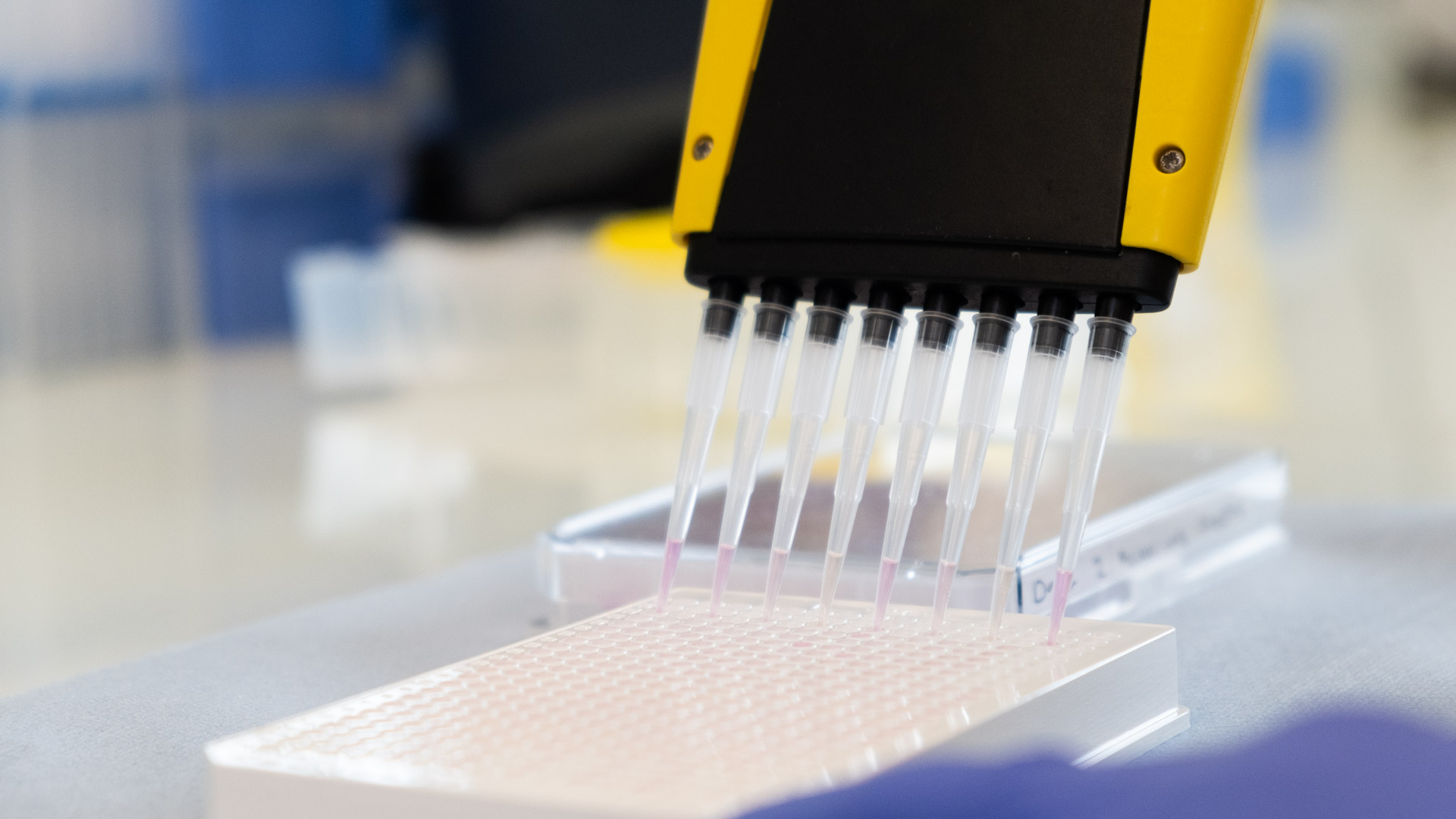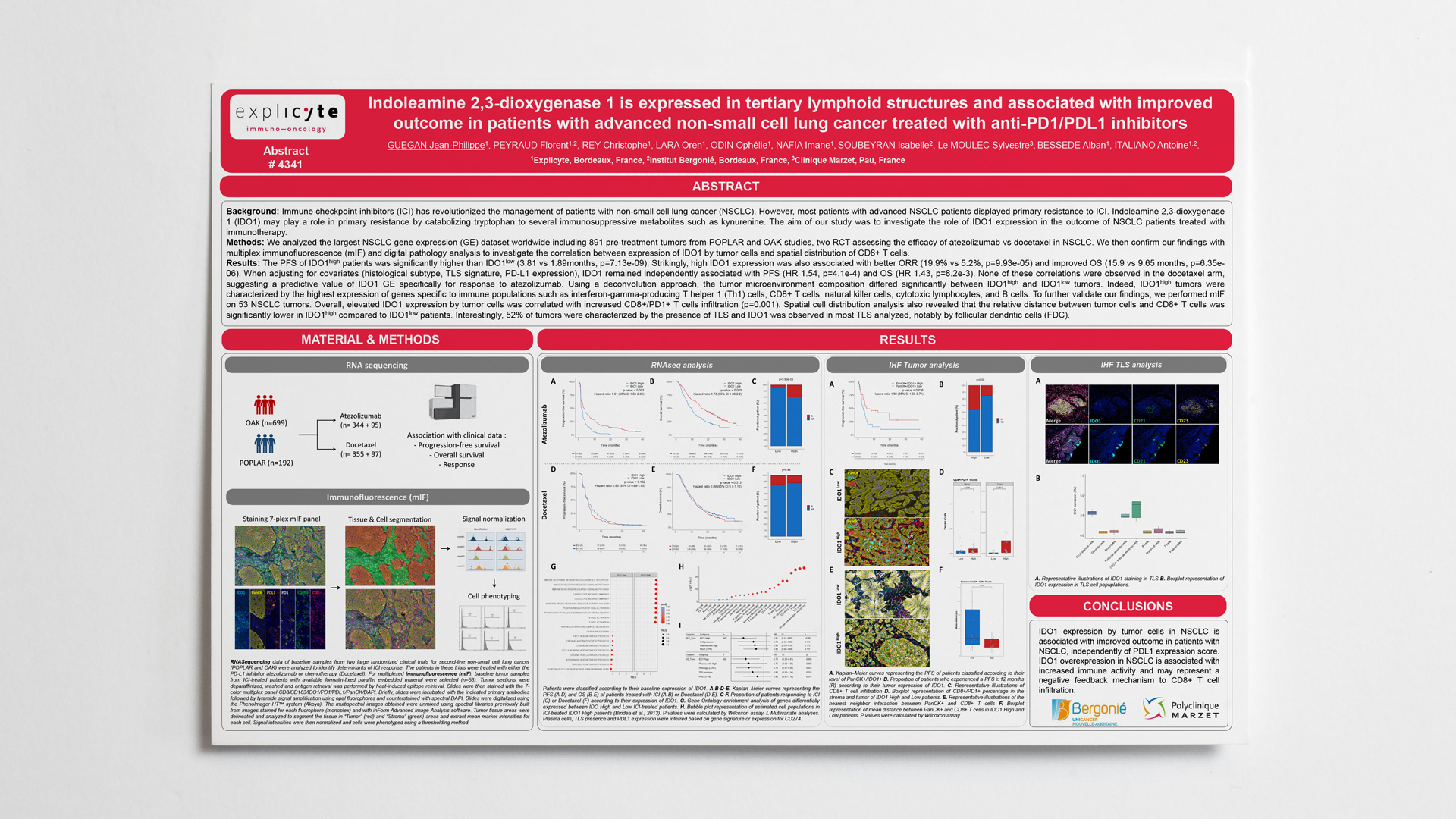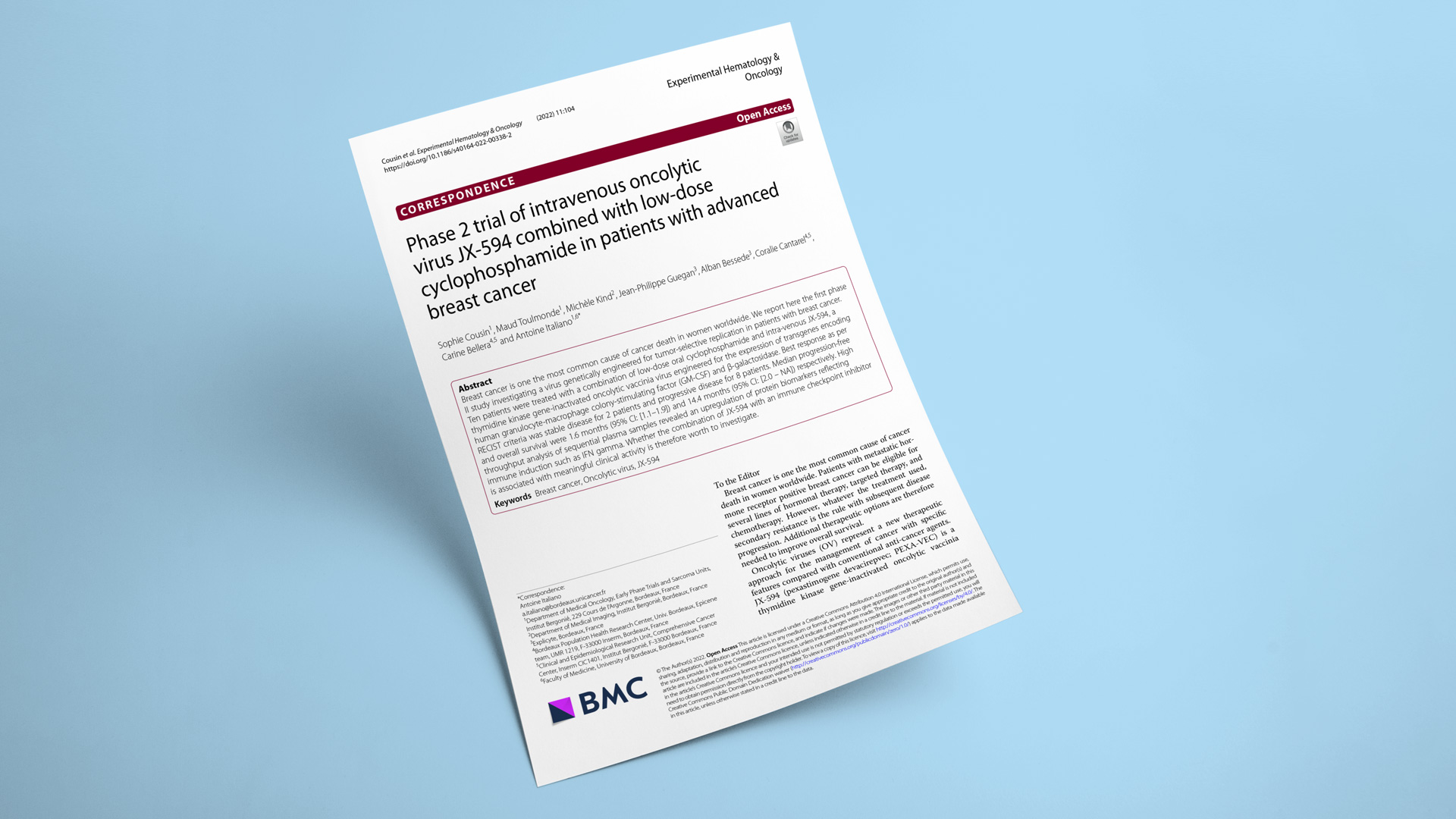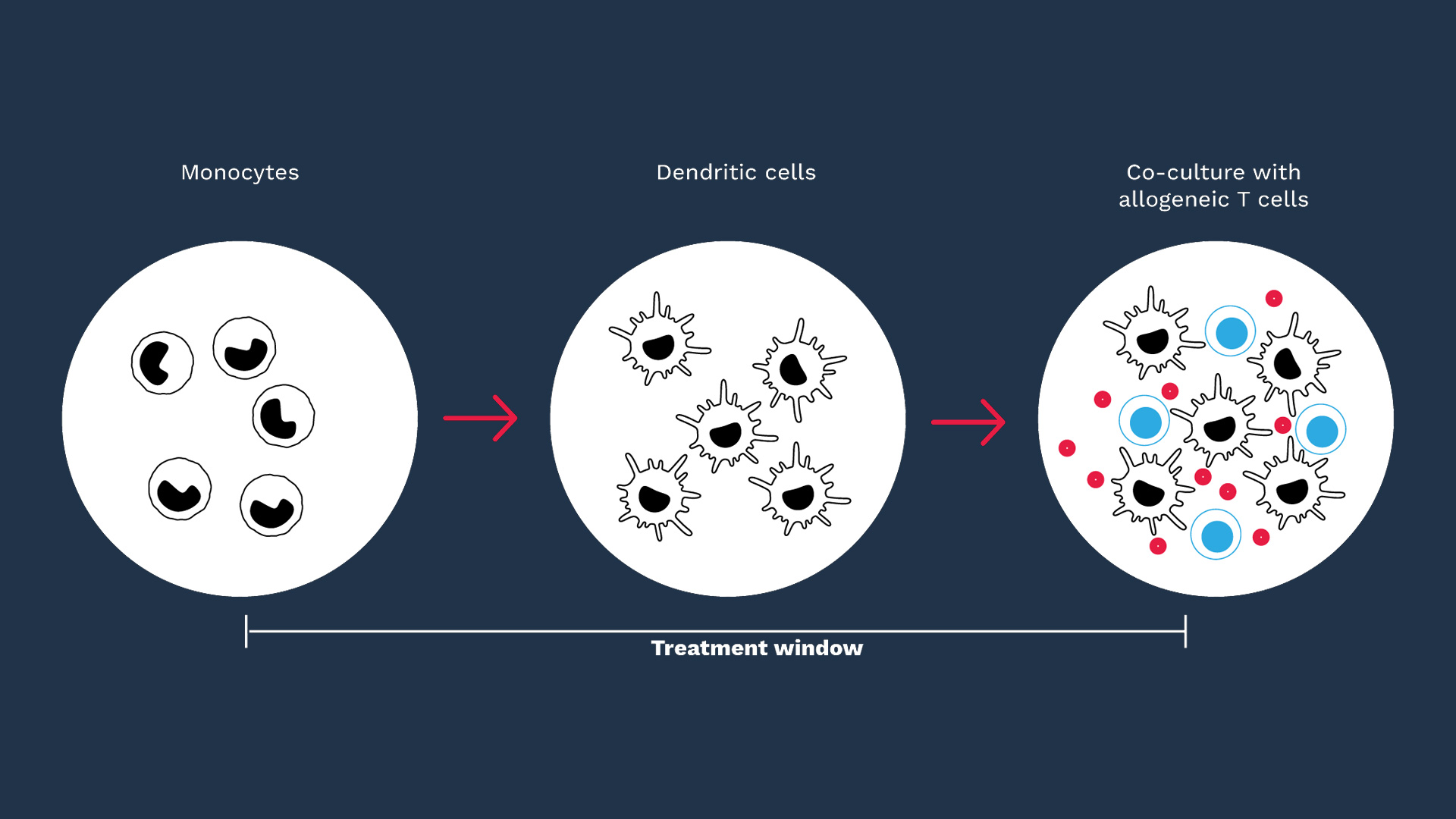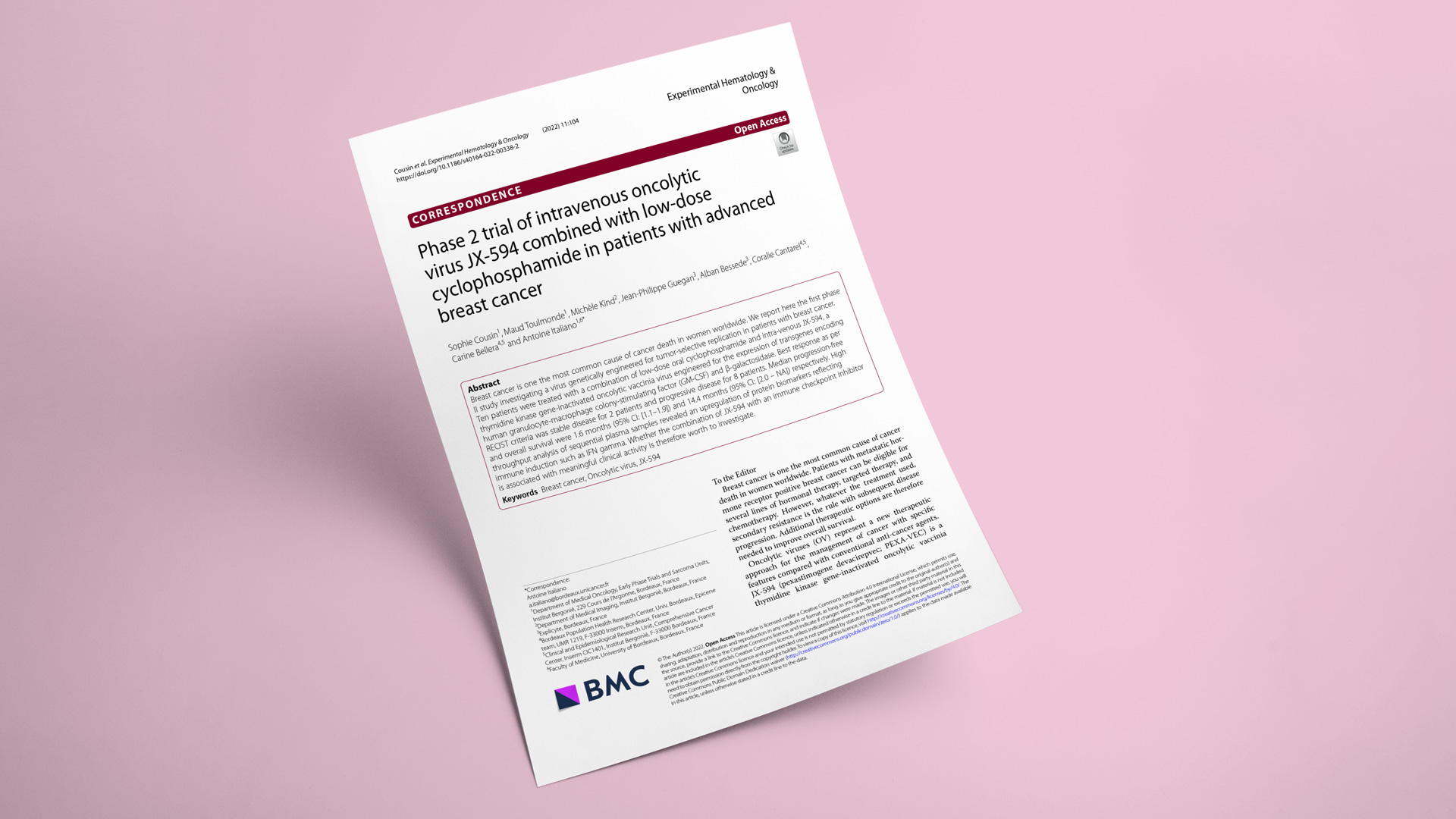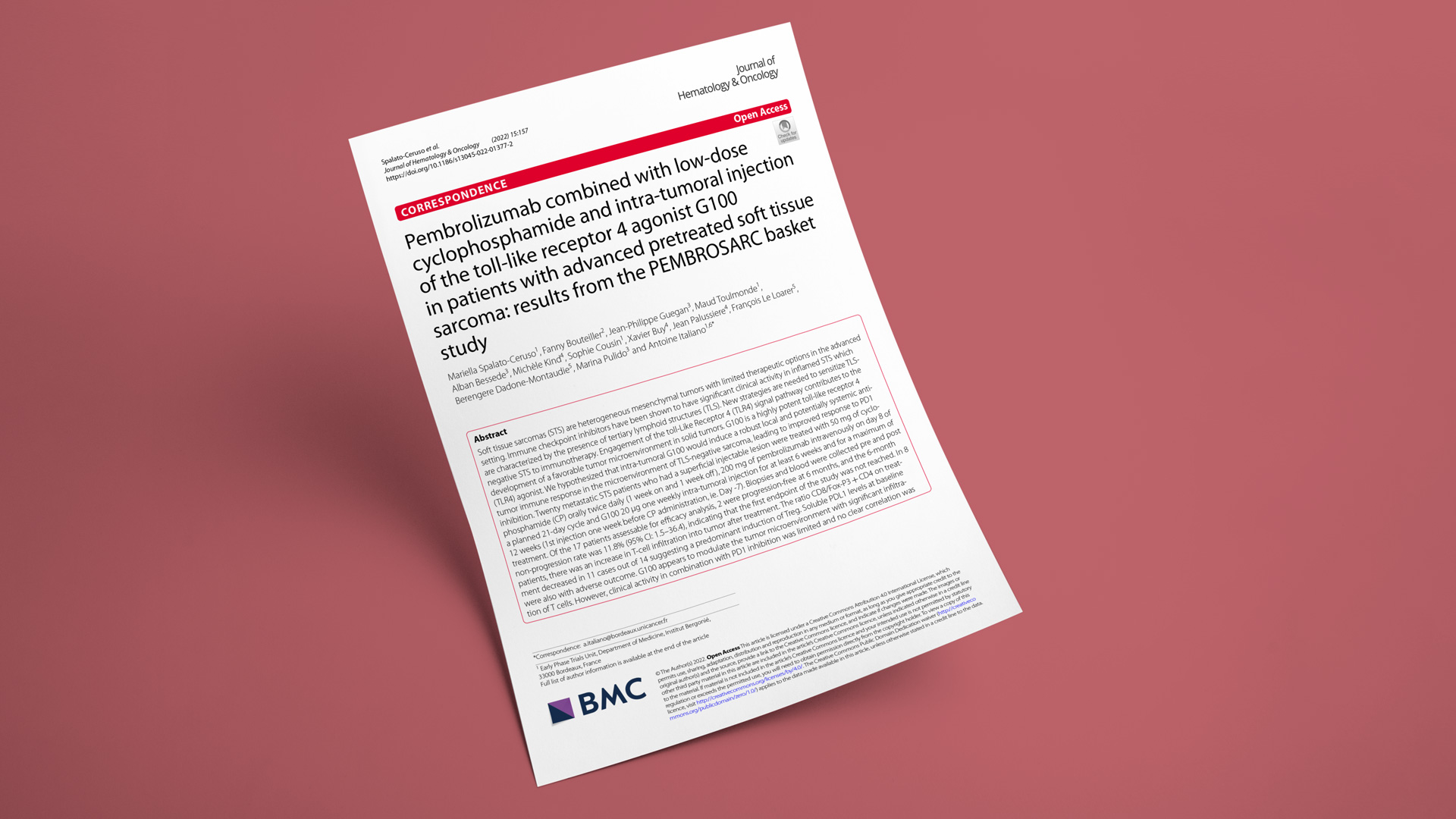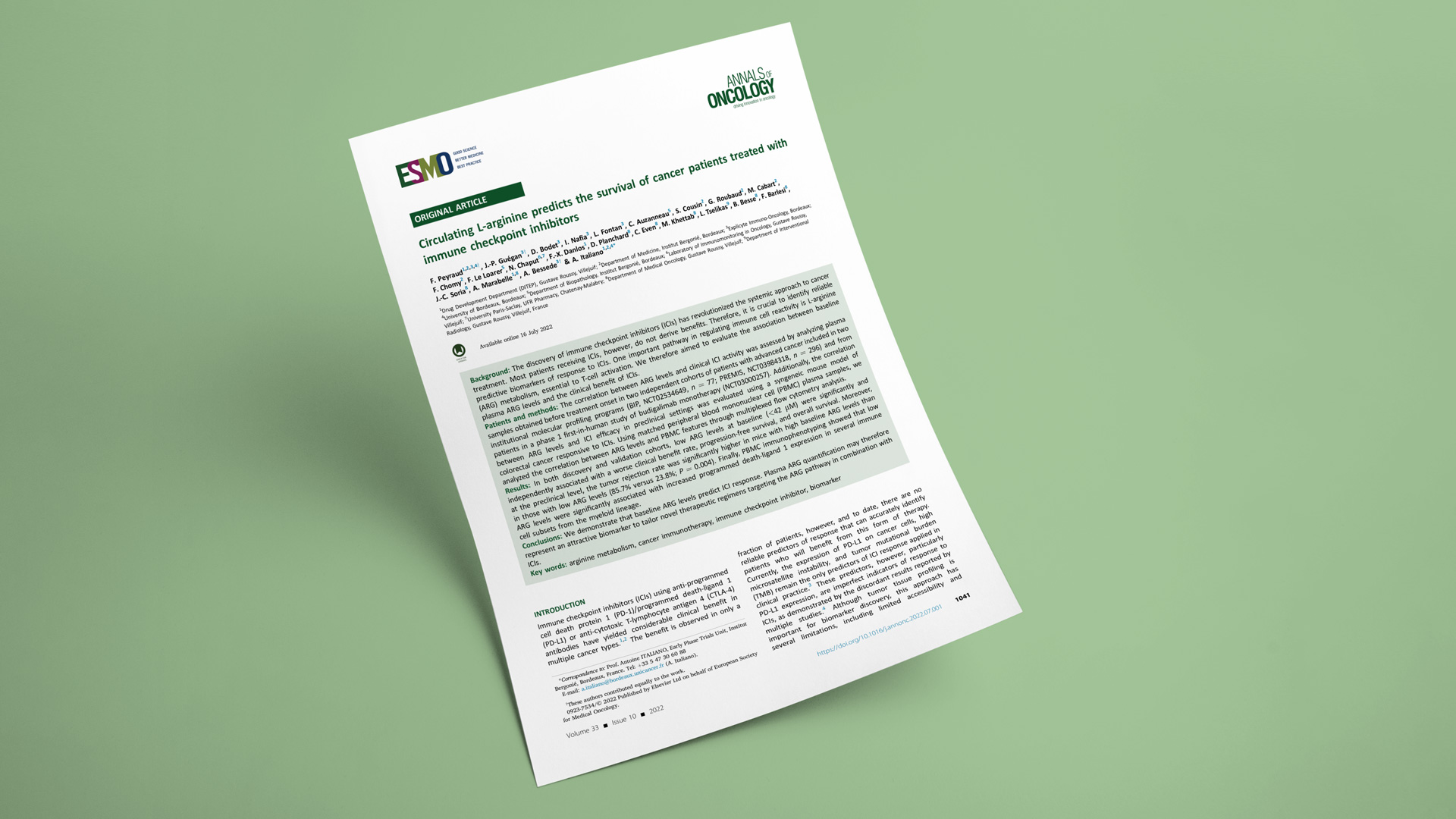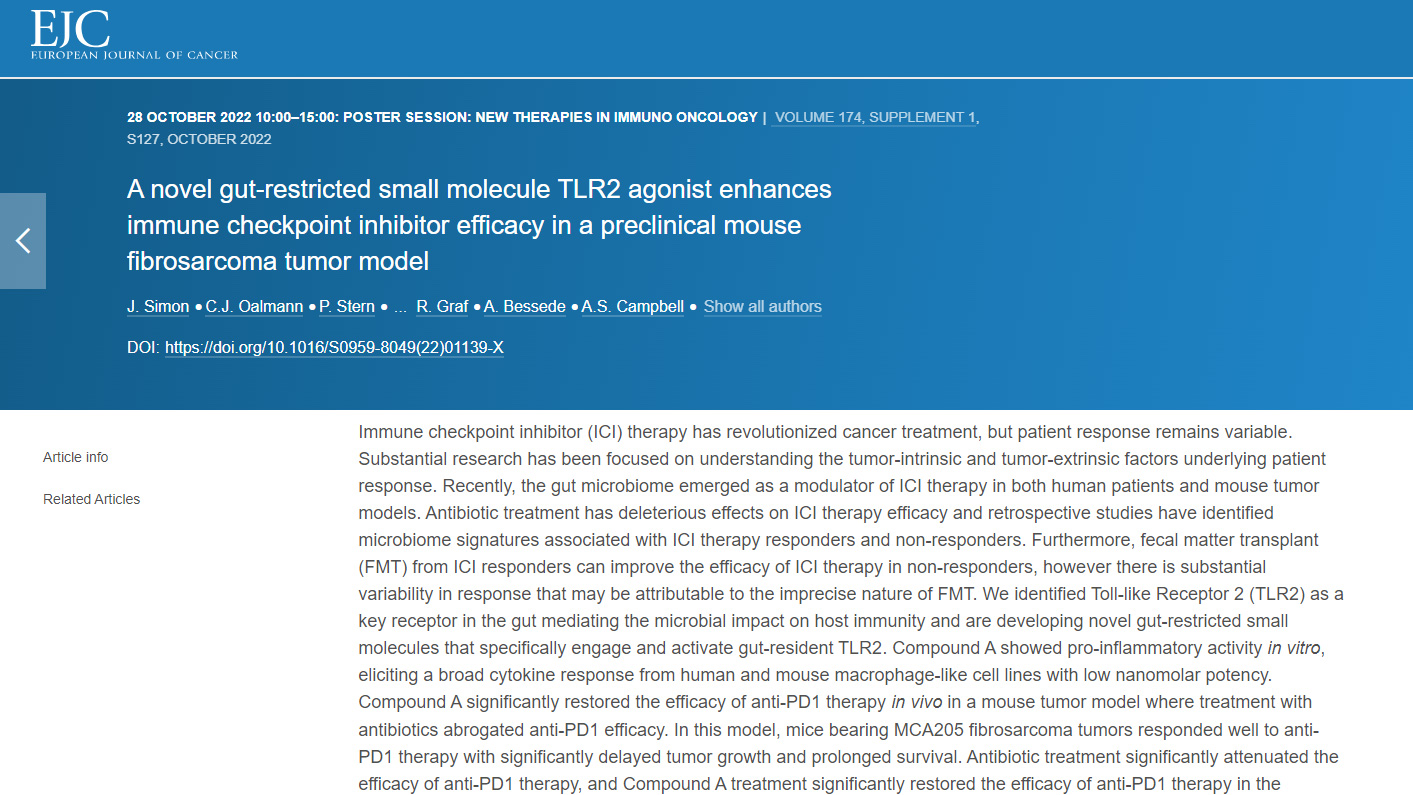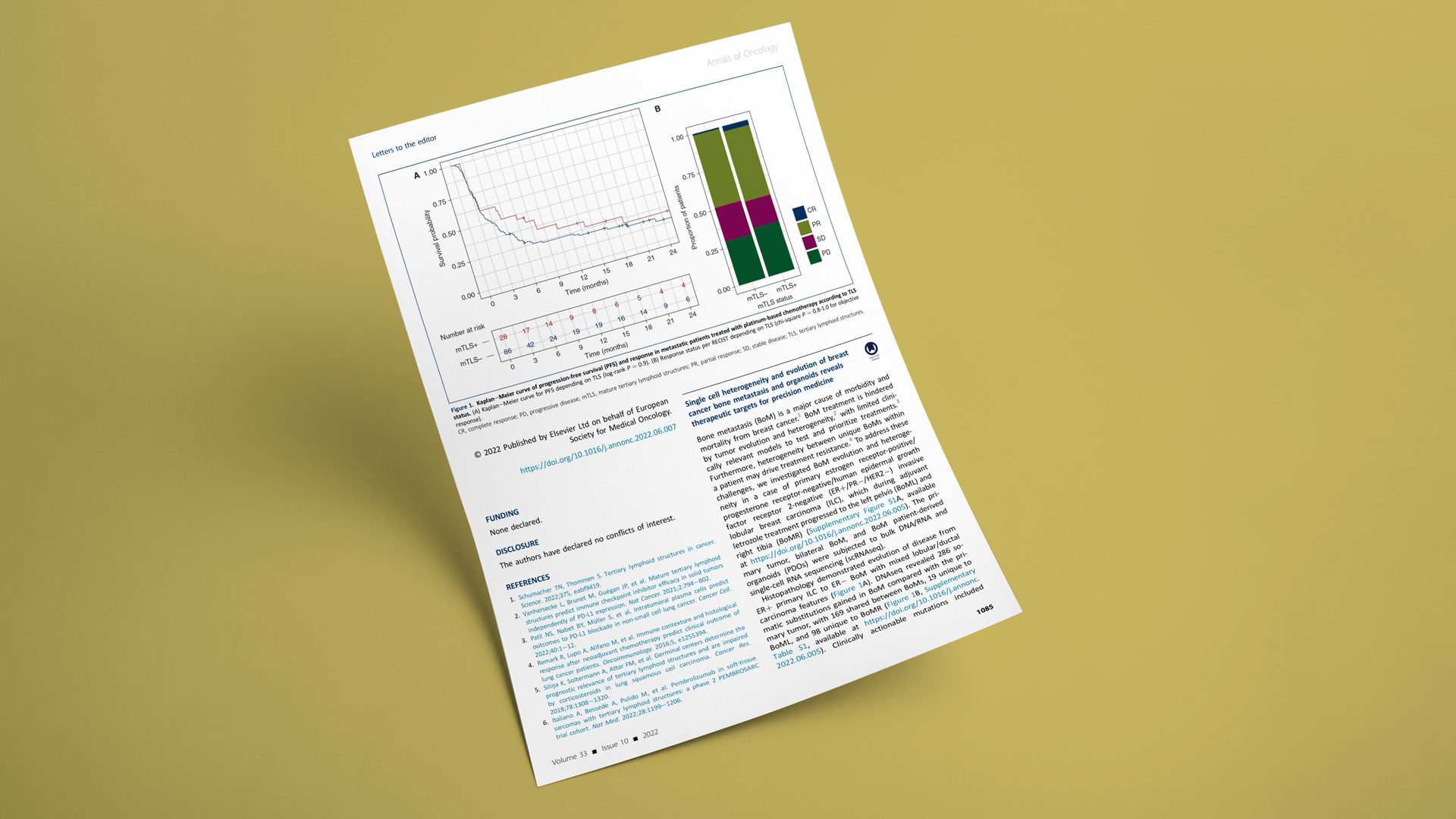In the context of cancer immune surveillance, dendritic cells (DCs) are key immune cells as they possess a unique ability to prime and expand antigen-specific CD4 and CD8 T cells. While trafficking from the tumor to the draining lymph nodes, they can cross-present tumor antigens and initiate a specific anti-tumor immune response. Even though several subsets exist, DCs must receive an activating signal to initiate a process of maturation that converts them from an accumulation to an antigen presentation mode to finally promote immunity or tolerance depending on the nature of the stimulus.
Thus, considering the importance of DCs in fine-tuning T cell response, their manipulation represents an attractive approach to elicit or boost an anti-tumor immune response. For this purpose, benefiting from a robust assay that evaluates the function and immunomodulation of DCs is highly valuable.
To this end, we have developed and validated a mixed leukocyte reaction (MLR) assay which is based on a co-culture of allogenic CD4+ T cells (responder) and monocyte-derived DCs (stimulator). The data shown here, originating from independent donor pairs, illustrate stimulatory or immunosuppressive properties of reference compounds. Indeed, while Adenosine, a well-known immunomodulatory nucleoside, favored a “tolerogenic” profile that translated into a limited MLR response as shown through lower levels of cytokines released in the co-culture, Nivolumab application significantly boosted the MLR response.
Hence, this dataset underlines the effectiveness of our assay in addressing the ability of test items to modulate DC-mediated immune responses.

MLR in allogenic human mDC/CD4 T cell co-cultures from independent donor pairs is enhanced upon PD1 inhibition and limited by Adenosine.
Isolated peripheral blood monocyte-derived DCs are co-cultured with allogenic CD4+ T cells. At the end of the co-culture period, IFNg (A) and IL2 (B) levels released in the supernatants are measured by HTRF.
While mature DCs display T-cell stimulating ability underlined through the MLR response, this response is further optimized following PD1 blockade with Nivolumab and limited upon Adenosine treatment.
More about our MLR assays
Thus, considering the importance of DCs in fine-tuning T cell response, their manipulation represents an attractive approach to elicit or boost an anti-tumor immune response. For this purpose, benefiting from a robust assay that evaluates the function and immunomodulation of DCs is highly valuable.
To this end, we have developed and validated a mixed leukocyte reaction (MLR) assay which is based on a co-culture of allogenic CD4+ T cells (responder) and monocyte-derived DCs (stimulator). The data shown here, originating from independent donor pairs, illustrate stimulatory or immunosuppressive properties of reference compounds. Indeed, while Adenosine, a well-known immunomodulatory nucleoside, favored a “tolerogenic” profile that translated into a limited MLR response as shown through lower levels of cytokines released in the co-culture, Nivolumab application significantly boosted the MLR response.
Hence, this dataset underlines the effectiveness of our assay in addressing the ability of test items to modulate DC-mediated immune responses.
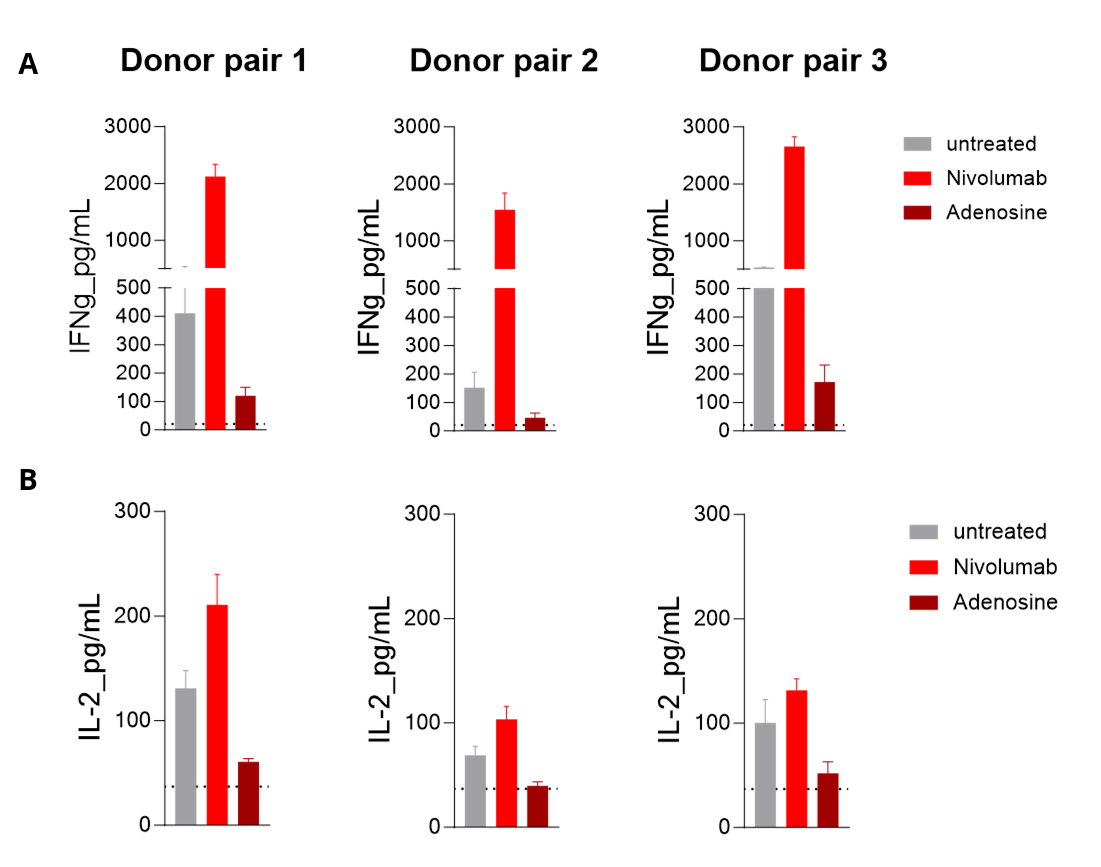
MLR in allogenic human mDC/CD4 T cell co-cultures from independent donor pairs is enhanced upon PD1 inhibition and limited by Adenosine.
Isolated peripheral blood monocyte-derived DCs are co-cultured with allogenic CD4+ T cells. At the end of the co-culture period, IFNg (A) and IL2 (B) levels released in the supernatants are measured by HTRF.
While mature DCs display T-cell stimulating ability underlined through the MLR response, this response is further optimized following PD1 blockade with Nivolumab and limited upon Adenosine treatment.
More about our MLR assays

